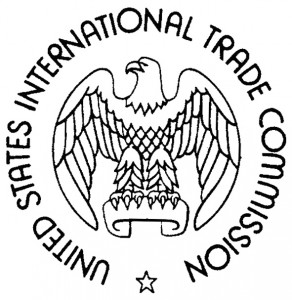 [Updated Jan 5] The U.S. International Trade Commission has released its report on Indian trade, investment and industrial policies, including but not limited to intellectual property rights. The full report is here and the the press release is here.
[Updated Jan 5] The U.S. International Trade Commission has released its report on Indian trade, investment and industrial policies, including but not limited to intellectual property rights. The full report is here and the the press release is here.
The report was based on “a survey of U.S. companies doing business in India; a quantitative analysis of the effects on the U.S. economy; and qualitative research, including a hearing and fieldwork, to produce case studies and examples that help illustrate effects of the policies on particular companies or industries.”
The letter from four current and former Congressional leaders (Baucus, Hatch, Camp and Levin) which requested the report had stressed problems in the trade relationship between India and the U.S. [Appendix A, page 307]. However, the data presented in the report indicates that American companies see business with India growing.
Overall, three quarters of the firms (73.9%) that answered the survey indicated they were not substantially adversely affected by Indian policies. Among the firms that reported problems, “Measures in two policy areas — tariffs and customs procedures, and taxes and financial regulations — have the heaviest effect on U.S. companies … IP-related impediments rated lower than tariffs and taxes as barriers to doing business in India, even by U.S. companies that considered IP protection very important to their operations.” Data from the survey that support this:
- Share of U.S. companies engaged in India that are substantially affected by … intellectual property and local content requirements: 8.2% (Table ES 1)
- Share of U.S. companies with foreign affiliates in India that are substantially affected by … intellectual property and local content requirements: 11.4% (Table ES 2)
- Share of IP- intensive companies that are substantially affected by … intellectual property and local content requirements: 11.7% (Table ES 4)
Nonetheless, the report says that IP is a top priority for certain industries, especially the pharmaceutical industries. “The IP environment and local – content requirements (LCRs) were most problematic for pharmaceutical companies, with 27.9 percent substantially affected. These findings were supported by qualitative research, including interviews with U.S. companies, that provides evidence of substantial challenges with particular Indian policies in certain industries.” The report includes a case study of the Nexavar compulsory license [page 158].
The report also presents Commerce Department export and Foreign Direct Investment data. Since 2000, exports of U.S. goods and services to India have risen far more rapidly than exports to other Asia-Pacific countries, or exports to the world as a whole. This is especially the case for goods exports, which have quintupled in this time period. [see tables I1 and I2, page 433]. Outbound FDI to India in both the goods and services sectors have also significantly outpaced FDI to other countries in the region and the rest of the world as a whole.
For more on the investigation:
Videos of the hearings that were held as part of this International Trade Commission investigation have been placed online by Knowledge Ecology International. I wrote a series of blogs on the hearings: First panel | Second panel | Third panel.




